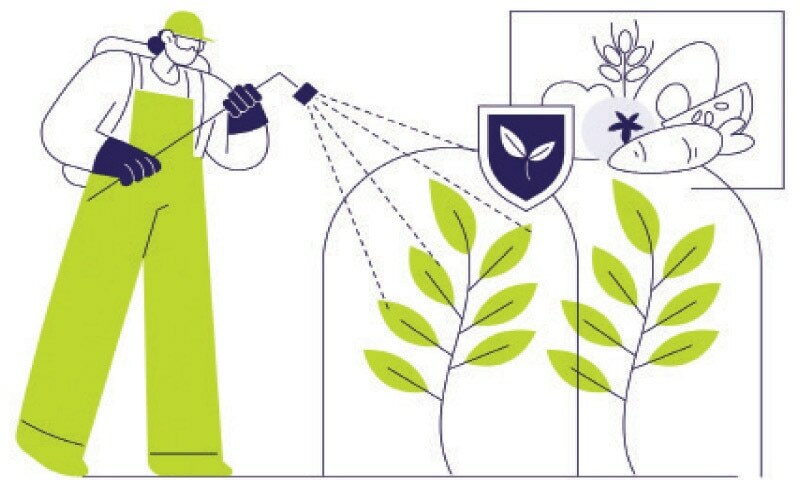Pakistan's agricultural sector is facing a critical food safety crisis, with high levels of aflatoxins and pesticide residues exceeding permissible limits in its produce. This issue not only threatens the health of the local population but also hampers the country's ability to compete in the global market.
The problem stems from a lack of awareness and guidance among Pakistani farmers, many of whom are illiterate or have limited literacy. This has led to the overuse of synthetic pesticides, often applied too close to harvest time, resulting in excessive pesticide residues.
The consequences are severe. Pakistan's food exports, including rice and red chillies, have been repeatedly rejected by international buyers due to high levels of aflatoxins and pesticide residues. This has had a significant impact on the country's trade, particularly with developed nations such as the European Union and Japan.
The situation is further compounded by the absence of a robust regulatory framework for food safety. There is a lack of public awareness about permissible limits for aflatoxins and pesticides, and limited access to testing facilities for food quality.
In response to this urgent challenge, the use of biopesticides has emerged as a potential solution. Biopesticides, derived from natural sources like plants or microorganisms, offer several advantages over conventional synthetic pesticides: they are environmentally friendly, highly specific in their action, sustainable, leave no residues, and do not contribute to greenhouse gas emissions.
The development and adoption of biopesticides has been gaining momentum worldwide. Pakistan, however, is still in the early stages of exploring this technology. While the Department of Plant Protection (DPP) has collaborated with Rafhan Maize to develop Aflapak, a biopesticide for preventing aflatoxin contamination in maize, the product has yet to be formally registered due to a lack of regulatory mechanisms.
The Centre for Agriculture and Bioscience International has been working on developing a regulatory framework for biopesticides, with progress made earlier this year.
While biopesticides may not offer immediate results like conventional pesticides, their environmental benefits are undeniable. The DPP believes that Pakistan, with its financial and technological resources, can leverage this technology to protect its food export industry and safeguard the health of its population.
However, there are challenges to overcome. The local industry will require time to develop the necessary systems and infrastructure for biopesticide research and production. Moreover, biopesticides are often more expensive than synthetic pesticides, have a shorter shelf life, and are more difficult to produce in bulk.
Despite these hurdles, experts believe that biopesticides have the potential to play a significant role in an integrated pest management programme. They are likely to be adopted first by organic and progressive farmers, with the adoption expected to gradually spread to other sectors.
The transition to biopesticides will require a concerted effort from the government, research institutions, and industry stakeholders. Investment in research and development, strengthening regulatory frameworks, and promoting awareness among farmers are critical steps towards building a sustainable and safe food system for Pakistan.
Article
Business

Biopesticides: A Solution to Pakistan's Food Safety Crisis?

